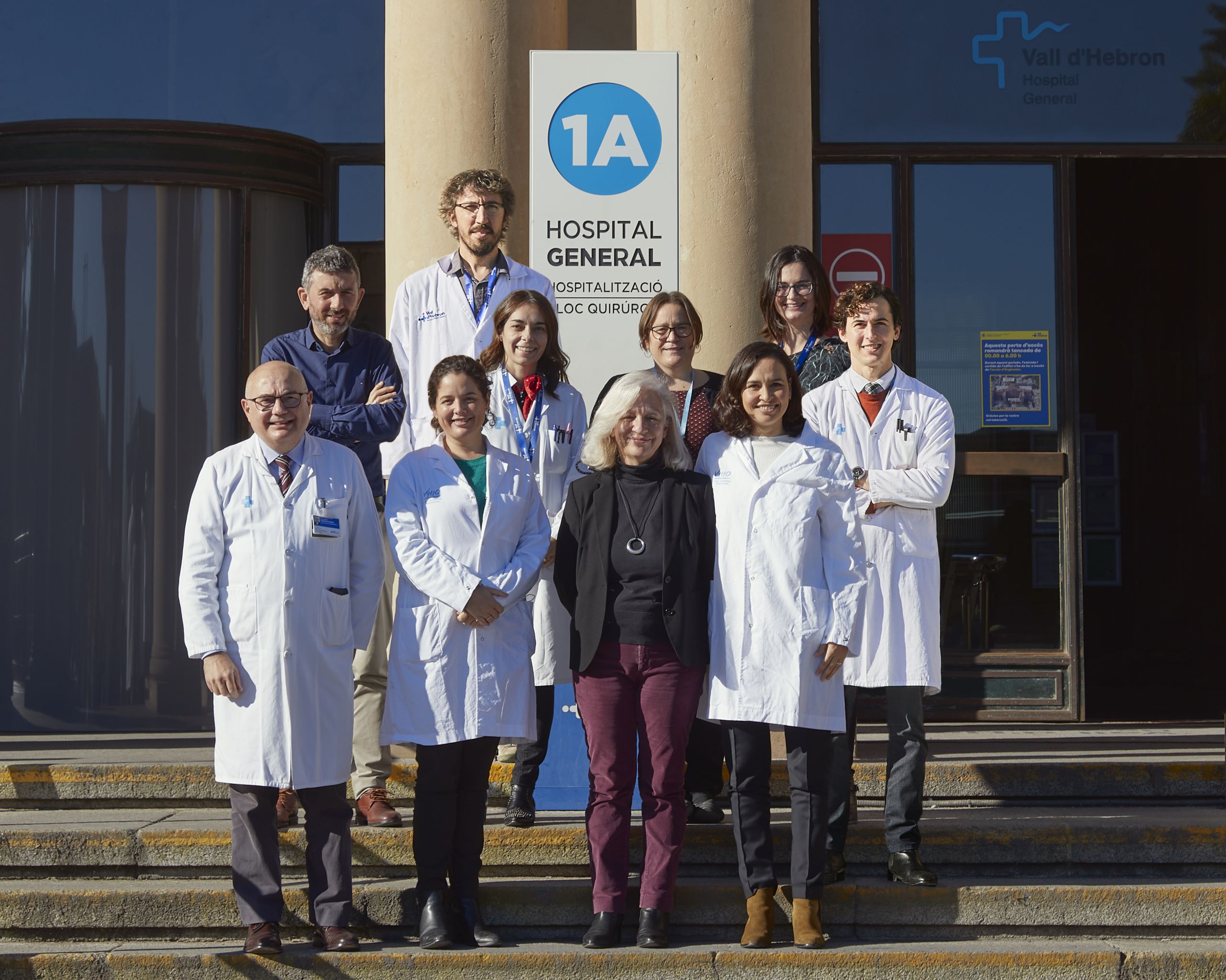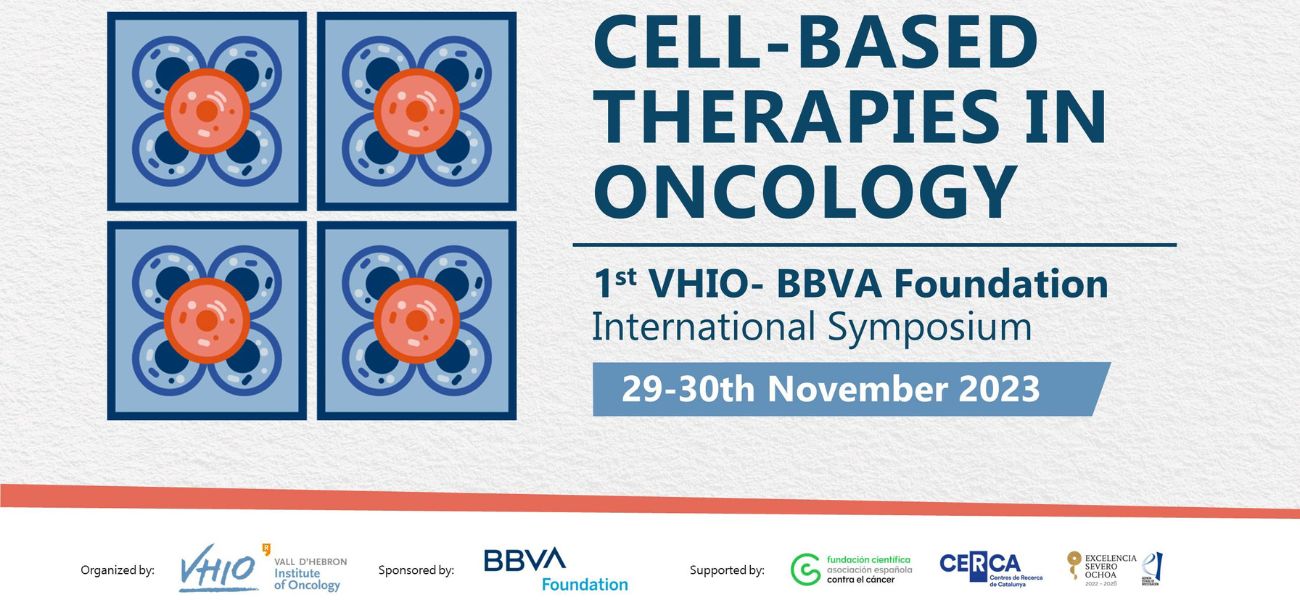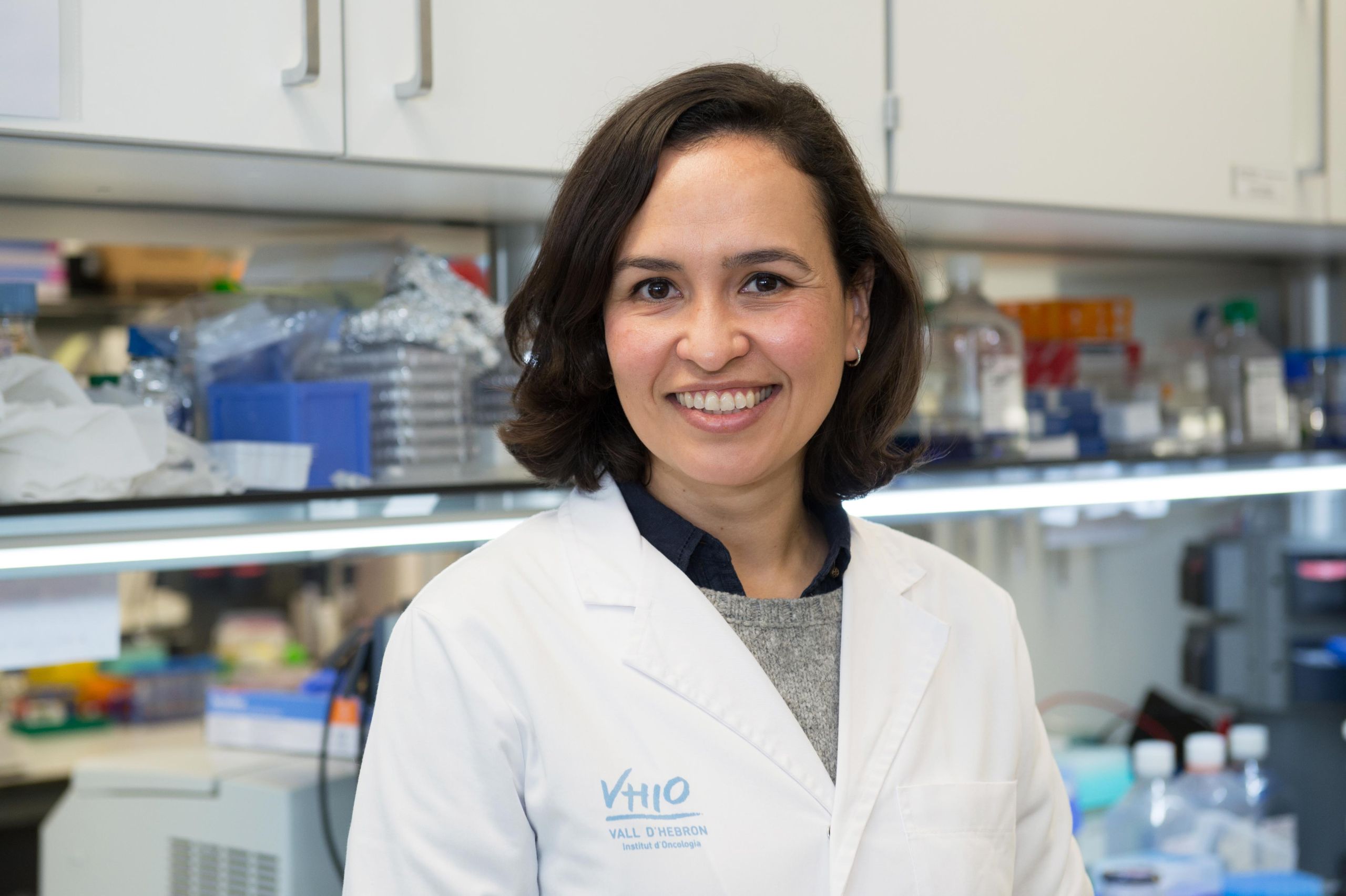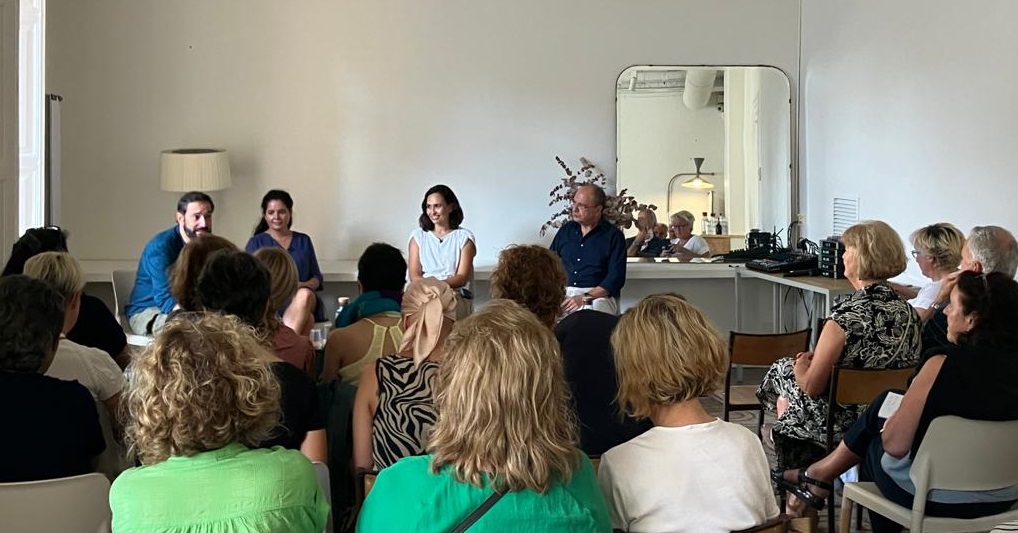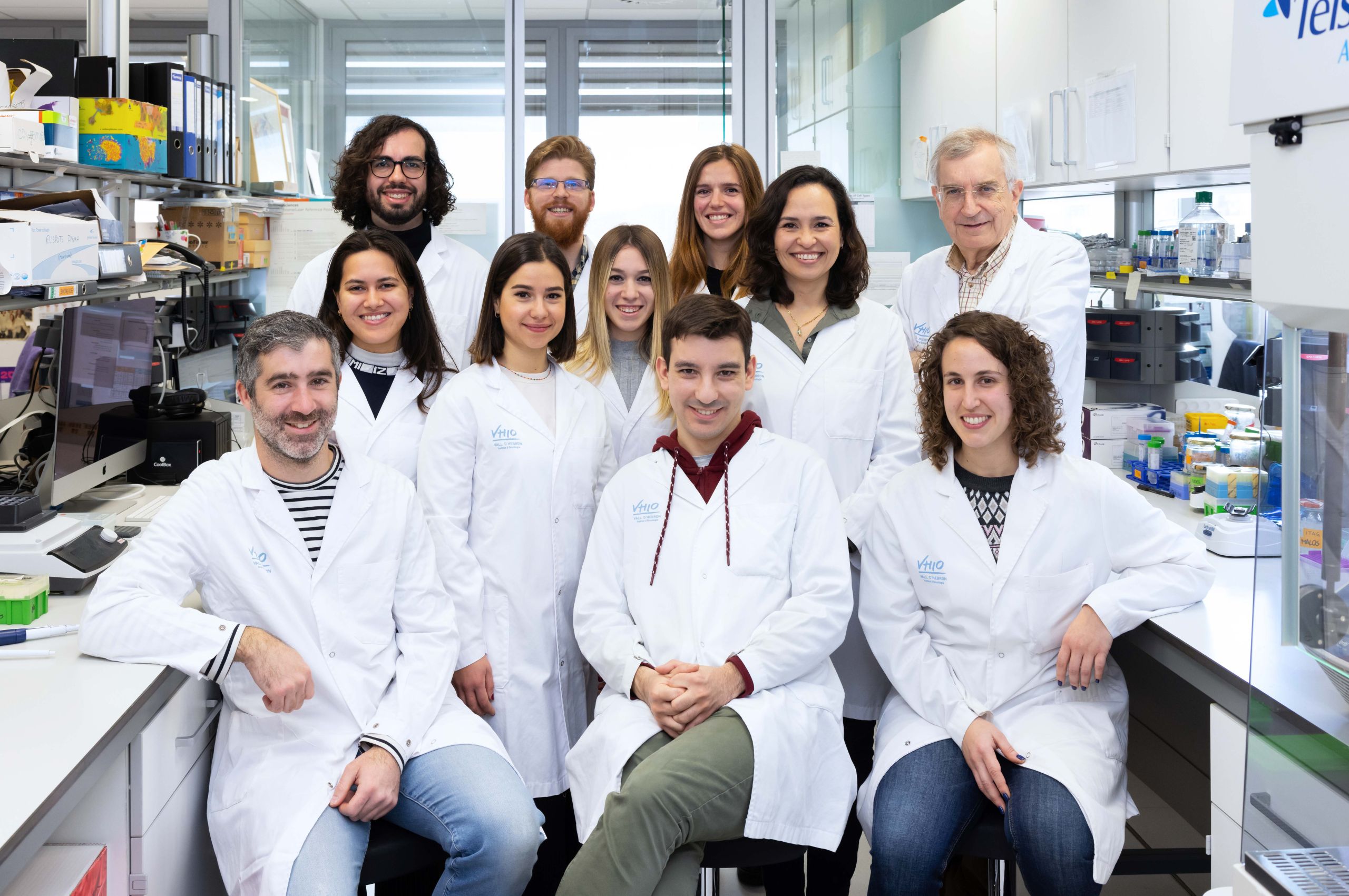
Les immunoteràpies contra el càncer aprofiten el sistema immunitari per atacar la malaltia de manera més eficaç. Els estudis clínics han demostrat que els inhibidors dels punts de control immunitaris i les teràpies basades en limfòcits T poden intervenir en la regressió del tumor en pacients amb càncer amb malaltia metastàtica. Així doncs, a més de la cirurgia, la radioteràpia i la quimioteràpia, la immunoteràpia representa cada cop més el quart pilar de la teràpia contra el càncer en diversos tipus de tumors.
Malgrat les encoratjadores respostes antitumorals, actualment només una part dels pacients tractats amb teràpies immunitàries respon i alguns, lamentablement, presenten esdeveniments adversos relacionats amb les autoimmunitats. Per tant, hi ha una necessitat crítica de desenvolupar i personalitzar aquests prometedors tractaments.
Cada cop hi ha més proves que els neoantígens tenen un paper important en l’eficàcia clínica de les immunoteràpies contra el càncer. Per això, i gràcies al suport rebut del Programa Integral d’Immunoteràpia i Immunologia del Càncer (CAIMI) de la Fundació BBVA al VHIO, així com d’altres agències finançadores, ia través de la col·laboració de molts anys del nostre grup amb Elena Garralda, investigadora principal del Grup de Desenvolupament Clínic Precoç de Fàrmacs del VHIO i directora de la nostra Unitat de Recerca de Teràpia Molecular del Càncer (UITM)-CaixaResearch, rebem l’autorització de l’Agència Espanyola de Medicaments i Productes Sanitaris (AEMPS) el maig del 2021 per iniciar un assaig clínic de fase I per provar la seguretat i tolerabilitat de TILs reactius a neoantígens seleccionats.
En aquest assaig clínic en curs estem utilitzant un enfocament molt personalitzat (vegeu la figura) per detectar el reconeixement intervingut per limfòcits T d’antígens mutats a través de cèl·lules presentadores d’antígens autòlogues que poden processar i presentar-se a tot l’antigen leucocitari humà (HLA) possible. En aquest estudi clínic pilot finançat per l’Institut de Salut Carlos III-ISCIII, volem tractar fins a 10 pacients amb càncers epitelials i melanoma resistents als tractaments de referència. Mitjançant l’enriquiment de limfòcits reactius a neoantígens, esperem ampliar l’eficàcia del tractament amb TILs més enllà del melanoma.
Els treballs del nostre grup han demostrat que els limfòcits T reactius a tumors poden detectar-se amb freqüència circulant a la sang de pacients amb càncer, independentment del tipus específic de tumor. La capacitat de rastrejar i monitoritzar els limfòcits T CD8+ i CD4+ reactius a tumors a la sang té un enorme potencial terapèutic, però resulta més difícil a causa de la seva menor prevalença. El nostre grup ha contribuït a definir una firma fenotípica que pot guiar la identificació i l’enriquiment de limfòcits T reactius a tumors i neoantígens a partir de la sang de pacients amb càncer, i el nostre objectiu és aprofitar-la per desenvolupar tractaments de limfòcits T mínimament invasius per tractar a pacients amb càncer. Ara també ens proposem dur a terme un perfil exhaustiu de la resposta dels limfòcits T de sang perifèrica a escala unicel·lular en pacients tractats amb inhibidors de punts de control immunitaris per comprendre millor els factors determinants de la resposta.
A més de l’anterior, el nostre grup també està interessat a desenvolupar tecnologies d’alt rendiment per comprendre millor el panorama dels antígens tumorals que fan que els tumors siguin susceptibles a l’atac immunitari, els neoantígens compartits, així com els mecanismes de resistència a la citotoxicitat de els limfòcits T.
- Caracteritzar la resposta dels limfòcits T antitumorals personalitzats en pacients amb càncer.
- Analitzar el repertori personalitzat de limfòcits reactius al tumor per detectar possibles biomarcadors de resposta a la immunoteràpia contra el càncer.
- Investigar noves estratègies per identificar més ràpidament els limfòcits reactius al tumor, així com els antígens diana que impulsen aquesta resposta.
- Estudiar els mecanismes intrínsecs de resistència a la citotoxicitat intervinguda per limfòcits T de les cèl·lules tumorals.
- Desenvolupar immunoteràpies oncològiques personalitzades basades en limfòcits T per a pacients amb tumors sòlids.
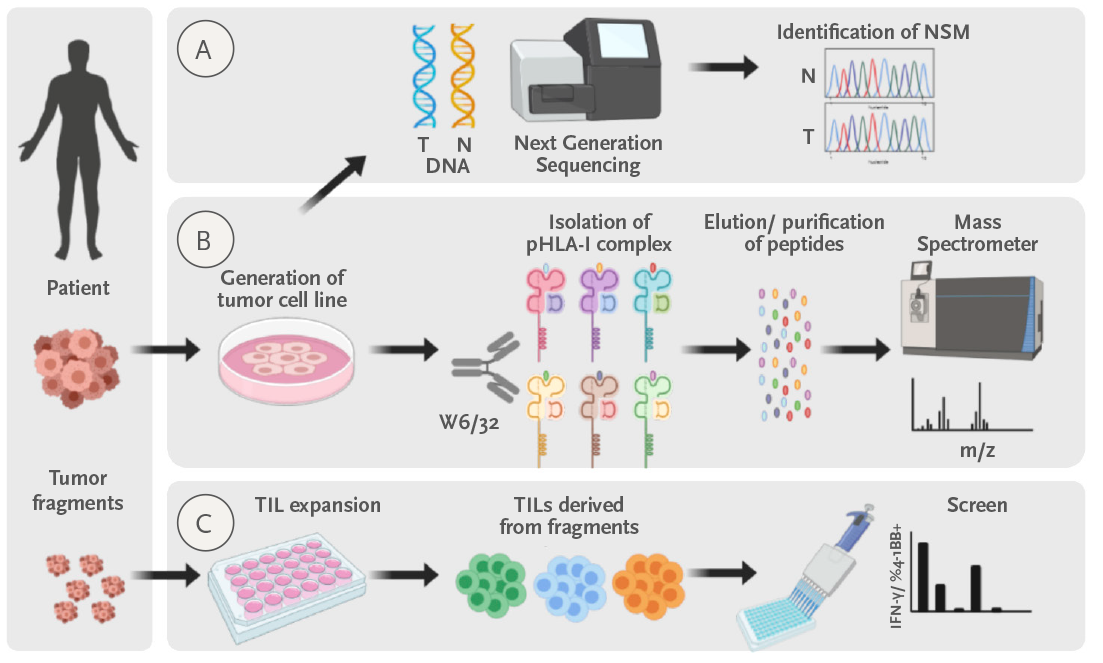
Figura: Enfocament personalitzat per identificar LIT específics del tumor i el neoantigen. a) Seqüenciem l’ADN normal i el tumoral per identificar totes les mutacions no sinònimes. b) Paral·lelament, intentem generar una línia cel·lular del tumor. Quan es generen, aïllem els complexos pèptid-CMH I i identifiquem els pèptids que el CMH I presenta per línia cel·lular del tumor per espectrometria de masses. c) Finalment, examinem els LIT expandits a partir del tumor per reconèixer els pèptids neoantígens candidats identificats a a) o eluïts de l’MHCI a b).
Cap de grup
Alena Gros
Becaris postdoctorals
Jara Palomero
Pierre Levy
María Lozano
Endika Prieto
Estudiants de postgrau
Judit Díaz
Andrea García
Anna Yuste
Tècnics
Albert Marín
Immaculada Creus
Estudiants
Alisha Atmopawiro
Carla Brujas
Lab Manager
Noelia Alcazar
Bioinformático
Jonatan González
- Marin I, Boix O, Garcia-Garijo A, Sirois I, Caballe A, Zarzuela E, Ruano I, Stephan-Otto Attolini C, Prats N, Lopez-Dominguez JA, Kovatcheva M, Garralda E, Munoz J, Caron E, Abad M, Gros A, Pietrocola F, Serrano M. Cellular senescence is immunogenic and promotes anti-tumor immunity. Cancer Discov. Epub 2022 Oct 27.
- Palomero J, Panisello C, Lozano-Rabella M, Tirtakasuma R, Díaz-Gómez J, Grases D, Pasamar H, Arregui L, Dorca Duch E, Guerra Fernández E, Vivancos A, de Andrea CE, Melero I, Ponce J, Vidal A, Piulats JM, Matias-Guiu X, Gros A. Biomarkers of tumor-reactive CD4+ and CD8+ TILs associate with improved prognosis in endometrial cancer. J Immunother Cancer. 2022 Dec;10(12):e005443. doi: 10.1136/jitc-2022-005443. PMID: 36581331; PMCID: PMC9806064.
- Levy PL, Gros A. Fast track to personalized TCR T cell therapies. Cancer Cell. 2022 May 9;40(5):447-449.
- Gartner JJ, Parkhurst MR, Gros A, Tran E, Jafferji MS, Copeland A, Hanada KI, Zacharakis N, Lalani A, Krishna S, Sachs A, Prickett TD, Li YF, Florentin M, Kivitz S, Chatmon SC, Rosenberg SA, Robbins PF. A machine learning model for ranking candidate HLA class I neoantigens based on known neoepitopes from multiple human tumor types. Nat Cancer. 2021 May;2(5):563-574.
- Arenas EJ, Martínez-Sabadell A, Rius Ruiz I, Román Alonso M, Escorihuela M, Luque A, Fajardo CA, Gros A, Klein C, Arribas J. Acquired cancer cell resistance to T cell bispecific antibodies and CAR T targeting HER2 through JAK2 down-modulation. Nat Commun. 2021 Feb 23;12(1):1237.
- Kast F, Klein C, Umaña P, Gros A, Gasser S. Advances in identification and selection of personalized neoantigen/T-cell pairs for autologous adoptive T cell therapies. Oncoimmunology. 2021 Jan 7;10(1):1869389.
- Arenas EJ, Martínez-Sabadell A, Rius Ruiz I, Román Alonso M, Escorihuela M, Luque A, Fajardo CA, Gros A, Klein C, Arribas J. Acquired cancer cell resistance to T cell bispecific antibodies and CAR T targeting HER2 through JAK2 down-modulation. Nat Commun. 2021 Feb 23;12(1):1237. doi: 10.1038/s41467-021-21445-4. PMID: 33623012; PMCID: PMC7902842.
- Kast F, Klein C, Umaña P, Gros A, Gasser S. Advances in identification and selection of personalized neoantigen/T-cell pairs for autologous adoptive T cell therapies. Oncoimmunology. 2021 Jan 7;10(1):1869389. doi: 10.1080/2162402X.2020.1869389. PMID: 33520408; PMCID: PMC7808433.
- Lozano-Rabella M, Gros A. TCR Repertoire Changes during TIL Expansion: Clonal Selection or Drifting? Clin Cancer Res. 2020 Aug 15;26(16):4177-4179
- Gros A, Tran E, Parkhurst MR, Ilyas S, Pasetto A, Groh EM, Robbins PF, Yossef R, Garcia-Garijo A, Fajardo CA, Prickett TD, Jia L, Gartner JJ, Ray S, Ngo L, Wunderllich JR, Yang JC, Rosenberg SA. Recognition of human gastrointestinal cancer neoantigens by circulating PD-1+ lymphocytes. J Clin Invest. 2019 Nov 1;129(11):4992-5004.
- Garcia-Garijo A, Fajardo CA, Gros A. Determinants for Neoantigen Identification. Front Immunol. 2019 Jun 24;10:1392.
- Yossef R, Tran E, Deniger DC, Gros A, Pasetto A, Parkhurst MR, Gartner JJ, Prickett TD, Cafri G, Robbins PF, Rosenberg SA. Enhanced detection of neoantigen-reactive T cells targeting unique and shared oncogenes for personalized cancer immunotherapy. JCI Insight. 2018 Oct 4;3(19). pii: 122467.
- R. Eil, S.K. Vodnala, D. Clever, C.A. Klebanoff, M.Sukumar, J.H. Pan, D.C. Palmer, A. Gros, T.N. Yamamoto, S.J. Patel, G.C. Guittard, Z. Yu, V. Carbonaro, K. Okkenhaug, D.S. Schrump, W.M. Linehan, R. Roychoudhuri, N.P. Restifo. Ionic immune suppression within the tumour microenvironment limits T cell effector function, Nature, 14 (2016) 539-543.
- A. Pasetto, A. Gros, P.F. Robbins, D.C. Deniger, R.D. Prickett, R. Matus-Nicodemos, D.C. Douek, B. Howie, H. Robins, M.R. Parkhurst, J. Gartner, K. Trebska-McGowan, J.S. Crystal, S.A. Rosenberg.Tumor- and Neoantigen-reactive T-cell receptors can be identified based on their frequency in fresh tumor.Cancer Immunol 2 (2016) 734-743.
- T.D. Prickett, J.S. Crystal, C.J. Cohen, A. Pasetto, M.R. Parkhurst, J.J. Gartner, X. Yao, R. Wang, A. Gros, Y.F. Li, M. El-Gamil, K. Trebska-McGowan, S.A. Rosenberg, P.F. Robbins, Durable Complete Response from Metastatic Melanoma after Transfer of Autologous T Cells Recognizing 10 Mutated Tumor Antigens, Cancer Immunol Res, (2016).
- C.A. Klebanoff, C.D. Scott, A.J. Leonardi, T.N. Yamamoto, A.C. Cruz, C. Ouyang, M. Ramaswamy, R. Roychoudhuri, Y. Ji, R.L. Eil, M. Sukumar, J.G. Crompton, D.C. Palmer, Z.A. Borman, D. Clever, S.K. Thomas, S. Patel, Z. Yu, P. Muranski, H. Liu, E. Wang, F.M. Marincola, A. Gros, L. Gattinoni, S.A. Rosenberg, R.M. Siegel, N.P. Restifo, Memory T cell-driven differentiation of naive cells impairs adoptive immunotherapy, J Clin Invest, 126 (2016) 318-334.
- A. Gros, M.R. Parkhurst, E. Tran, A. Pasetto, P.F. Robbins, S. Ilyas, T.D. Prickett, J.J. Gartner, J.S. Crystal, I.M. Roberts, K. Trebska-McGowan, J.R. Wunderlich, J.C. Yang, S.A. Rosenberg, Prospective identification of neoantigen-specific lymphocytes in the peripheral blood of melanoma patients, Nat Med, 22 (2016) 433-438.
- E. Tran, M. Ahmadzadeh, Y.C. Lu, A. Gros, S. Turcotte, P.F. Robbins, J.J. Gartner, Z. Zheng, Y.F. Li, S. Ray, J.R. Wunderlich, R.P. Somerville, S.A. Rosenberg, Immunogenicity of somatic mutations in human gastrointestinal cancers, Science, 350 (2015) 1387-1390.
- L.M. Draper, M.L. Kwong, A. Gros, S. Stevanovic, E. Tran, S. Kerkar, M. Raffeld, S.A. Rosenberg, C.S. Hinrichs, Targeting of HPV-16+ Epithelial Cancer Cells by TCR Gene Engineered T Cells Directed against E6, Clin Cancer Res, 21 (2015) 4431-4439.
- J.G. Crompton, M. Sukumar, R. Roychoudhuri, D. Clever, A. Gros, R.L. Eil, E. Tran, K. Hanada, Z. Yu, D.C. Palmer, S.P. Kerkar, R.D. Michalek, T. Upham, A. Leonardi, N. Acquavella, E. Wang, F.M. Marincola, L. Gattinoni, P. Muranski, M.S. Sundrud, C.A. Klebanoff, S.A. Rosenberg, D.T. Fearon, N.P. Restifo, Akt inhibition enhances expansion of potent tumor-specific lymphocytes with memory cell characteristics, Cancer Res, 75 (2015) 296-305.
- N. Acquavella, D. Clever, Z. Yu, M. Roelke-Parker, D.C. Palmer, L. Xi, H. Pflicke, Y. Ji, A. Gros, K. Hanada, I.S. Goldlust, G.U. Mehta, C.A. Klebanoff, J.G. Crompton, M. Sukumar, J.J. Morrow, Z. Franco, L. Gattinoni, H. Liu, E. Wang, F. Marincola, D.F. Stroncek, C.C. Lee, M. Raffeld, M.W. Bosenberg, R. Roychoudhuri, N.P. Restifo, Type I cytokines synergize with oncogene inhibition to induce tumor growth arrest, Cancer Immunol Res, 3 (2015) 37-47.
- S. Turcotte, A. Gros, E. Tran, C.C. Lee, J.R. Wunderlich, P.F. Robbins, S.A. Rosenberg, Tumor-Reactive CD8+ T Cells in Metastatic Gastrointestinal Cancer Refractory to Chemotherapy, Clin Cancer Res, 20 (2014) 331-343.
- E. Tran, S. Turcotte, A. Gros, P.F. Robbins, Y.C. Lu, M.E. Dudley, J.R. Wunderlich, R.P. Somerville, K. Hogan, C.S. Hinrichs, M.R. Parkhurst, J.C. Yang, S.A. Rosenberg, Cancer immunotherapy based on mutation-specific CD4+ T cells in a patient with epithelial cancer, Science, 344 (2014) 641-645.
- A. Gros, P.F. Robbins, X. Yao, Y.F. Li, S. Turcotte, E. Tran, J.R. Wunderlich, A. Mixon, S. Farid, M.E. Dudley, K. Hanada, J.R. Almeida, S. Darko, D.C. Douek, J.C. Yang, S.A. Rosenberg, PD-1 identifies the patient-specific CD8(+) tumor-reactive repertoire infiltrating human tumors, J Clin Invest, 124 (2014) 2246-2259.
- S. Turcotte, A. Gros, K. Hogan, E. Tran, C.S. Hinrichs, J.R. Wunderlich, M.E. Dudley, S.A. Rosenberg, Phenotype and function of T cells infiltrating visceral metastases from gastrointestinal cancers and melanoma: implications for adoptive cell transfer therapy, J Immunol, 191 (2013) 2217-2225.
- R.A. Morgan, N. Chinnasamy, D. Abate-Daga, A. Gros, P.F. Robbins, Z. Zheng, M.E. Dudley, S.A. Feldman, J.C. Yang, R.M. Sherry, G.Q. Phan, M.S. Hughes, U.S. Kammula, A.D. Miller, C.J. Hessman, A.A. Stewart, N.P. Restifo, M.M. Quezado, M. Alimchandani, A.Z. Rosenberg, A. Nath, T. Wang, B. Bielekova, S.C. Wuest, N. Akula, F.J. McMahon, S. Wilde, B. Mosetter, D.J. Schendel, C.M. Laurencot, S.A. Rosenberg, Cancer regression and neurological toxicity following anti-MAGE-A3 TCR gene therapy, J Immunother, 36 (2013) 133-151.
- C. Puig-Saus, A. Gros, R. Alemany, M. Cascallo, Adenovirus i-leader truncation bioselected against cancer-associated fibroblasts to overcome tumor stromal barriers, Mol Ther, 20 (2012) 54-62.
- S. Guedan, D. Grases, J.J. Rojas, A. Gros, F. Vilardell, R. Vile, E. Mercade, M. Cascallo, R. Alemany, GALV expression enhances the therapeutic efficacy of an oncolytic adenovirus by inducing cell fusion and enhancing virus distribution, Gene Ther, 19 (2012) 1048-1057.
- A. Gros, S. Turcotte, J.R. Wunderlich, M. Ahmadzadeh, M.E. Dudley, S.A. Rosenberg, Myeloid cells obtained from the blood but not from the tumor can suppress T-cell proliferation in patients with melanoma, Clin Cancer Res, 18 (2012) 5212-5223.
- M. Gimenez-Alejandre, A. Gros, R. Alemany, Construction of capsid-modified adenoviruses by recombination in yeast and purification by iodixanol-gradient, Methods Mol Biol, 797 (2012) 21-34.
- L. Coughlan, S. Vallath, A. Gros, M. Gimenez-Alejandre, N. Van Rooijen, G.J. Thomas, A.H. Baker, M. Cascallo, R. Alemany, I.R. Hart, Combined fiber modifications both to target alpha(v)beta(6) and detarget the coxsackievirus-adenovirus receptor improve virus toxicity profiles in vivo but fail to improve antitumoral efficacy relative to adenovirus serotype 5, Hum Gene Ther, 23 (2012) 960-979.
- S. Guedan, J.J. Rojas, A. Gros, E. Mercade, M. Cascallo, R. Alemany, Hyaluronidase expression by an oncolytic adenovirus enhances its intratumoral spread and suppresses tumor growth, Mol Ther, 18 (2010) 1275-1283.
- A. Gros, C. Puig, S. Guedan, J.J. Rojas, R. Alemany, M. Cascallo, Verapamil enhances the antitumoral efficacy of oncolytic adenoviruses, Mol Ther, 18 (2010) 903-911.
- 22.- J.J. Rojas, M. Cascallo, S. Guedan, A. Gros, J. Martinez-Quintanilla, A. Hemminki, R. Alemany, A modified E2F-1 promoter improves the efficacy to toxicity ratio of oncolytic adenoviruses, Gene Ther, 16 (2009) 1441-1451.
- J. Martinez-Quintanilla, M. Cascallo, A. Gros, C. Fillat, R. Alemany, Positive selection of gene-modified cells increases the efficacy of pancreatic cancer suicide gene therapy, Mol Cancer Ther, 8 (2009) 3098-3107.
- M. Huch, A. Gros, A. Jose, J.R. Gonzalez, R. Alemany, C. Fillat, Urokinase-type plasminogen activator receptor transcriptionally controlled adenoviruses eradicate pancreatic tumors and liver metastasis in mouse models, Neoplasia, 11 (2009) 518-528, 514 p following 528.
- N. Bayo-Puxan, M. Gimenez-Alejandre, S. Lavilla-Alonso, A. Gros, M. Cascallo, A. Hemminki, R. Alemany, Replacement of adenovirus type 5 fiber shaft heparan sulfate proteoglycan-binding domain with RGD for improved tumor infectivity and targeting, Hum Gene Ther, 20 (2009) 1214-1221.
- S. Guedan, A. Gros, M. Cascallo, R. Vile, E. Mercade, R. Alemany, Syncytia formation affects the yield and cytotoxicity of an adenovirus expressing a fusogenic glycoprotein at a late stage of replication, Gene Ther, 15 (2008) 1240-1245.
- A. Gros, J. Martinez-Quintanilla, C. Puig, S. Guedan, D.G. Mollevi, R. Alemany, M. Cascallo, Bioselection of a gain of function mutation that enhances adenovirus 5 release and improves its antitumoral potency, Cancer Res, 68 (2008) 8928-8937.
- M. Cascallo, A. Gros, N. Bayo, T. Serrano, G. Capella, R. Alemany, Deletion of VAI and VAII RNA genes in the design of oncolytic adenoviruses, Hum Gene Ther, 17 (2006) 929-940.
- N. Bayo-Puxan, M. Cascallo, A. Gros, M. Huch, C. Fillat, R. Alemany, Role of the putative heparan sulfate glycosaminoglycan-binding site of the adenovirus type 5 fiber shaft on liver detargeting and knob-mediated retargeting, J Gen Virol, 87 (2006) 2487-2495.
- Grantor: Miguel Servet (Type 2). Title: Characterization of neoantigen-specific T cells and identification of predictive biomarkers of response in patients with MSI and MSI-like CRC treated with anti-PDL1.
- Grantor: Instituto de Salud Carlos III (ISCIII). Title: Terapia celular de próxima generación con TIL específicos de neoantígenos para pacientes con tumores resistentes a inhibidores de puntos de control inmunitario.
- Grantor: Fundación Fero (Beca Fero). Title: Non-invasive personalized T-cell therapies targeting recurrent hot spot driver mutations in cancer.
- Grantor: Fundación BBVA. Alena Gros is a member of the BBVA Foundation’s Immunotherapy & Immunology Program (CAIMI) at VHIO.
- Grantor: La Marató de TV3. Title: Personalized Immunotherapy for Endometrial Cancer.
- Grantor: La Caixa Health Research. Title: Development of enabling technologies for T-cell immunotherapy of solid tumors.
- Grantor: Ministerio de Ciencia e Innovación. Title: Mining the molecular determinants of the personalized T-cell response in cancer patients to develop more effective immunotherapies.



